
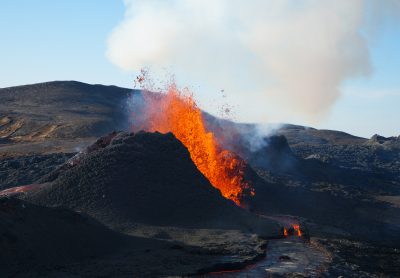
Oxygen brings stones to life
Oxygen is essential for life on Earth. Experiments by researchers now show that oxygen is also essential for melting rocks.
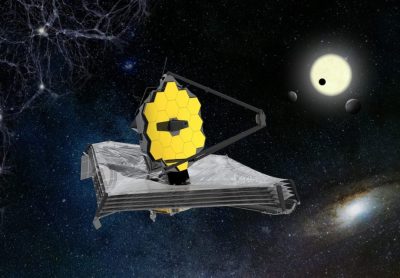
Hubble's big brother heading for space
After years of waiting, the time has come in mid-December: the James Webb Space Telescope will be launched. This infrared big brother of the Hubble Telescope is going to greatly increase our knowledge of many areas within astronomy.

Book: Why your dog doesn't need to eat fruit
Tales from around the house about DNA. Using numerous examples, author Ken Kraaijeveld takes the reader into the wonderful world of DNA, from modifying agricultural crops to changing genes to cure diseases.
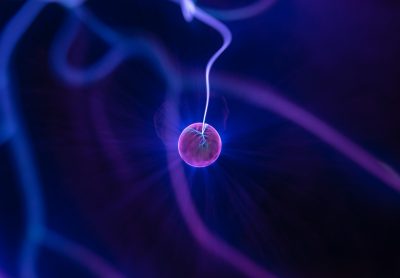
Death enables complexity in chemical evolution
Simple systems can reproduce faster than complex ones. So, how can the complexity of life have arisen from simple chemical beginnings?
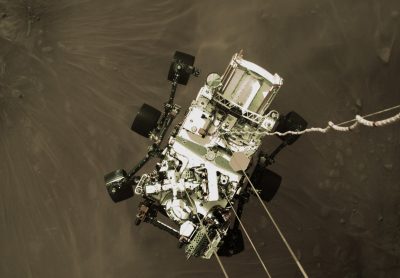
It is busy on Mars
Three space probes arrived at Mars this month. The United Arab Emirates sent a weather satellite. China sent a satellite and a rover that will land in three months. And last week, Mars rover Perseverance landed at the surface. It will work on the delta of an ancient river stream. Dutch researchers are Dutch researchers are at the tips of their seats...

Is all the DNA on Earth right-handed thanks to cosmic particles?
Science is bursting with wild ideas that are still unproven. But how convincing are they? Did cosmic particles give DNA a twist?

Inside a cell, enzymes cannot go faster
Growth forms the heart of living cells. About 1,000 chemical reactions take place in a cell - this is what we also refer to as metabolism. Nutrients are converted into energy or building blocks for growth. Six research groups in Groningen have together received almost two million euros in funding from NWO for research into the limitations of growth. In the coming years, they will try to discover why exactly metabolism cannot go any faster.
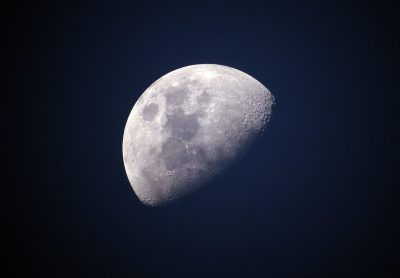
New rock samples collected from the moon
De Chinese maanmissie Chang’e-5 brengt komende week 2 kilogram van de jongste maangesteenten naar de aarde. “Er wordt reikhalzend uitgekeken naar deze nieuwe monsters omdat ze ons veel kunnen vertellen over de vorming van de aarde en de maan."
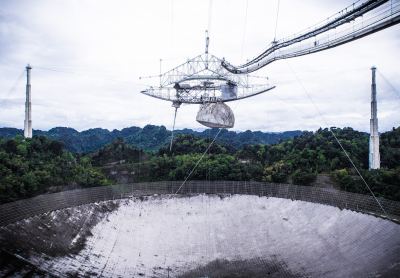
In memoriam: Arecibo radio telescope 1963–2020
The Arecibo telescope is one of the most famous telescopes in the world. In the last few days, Arecibo's iconic radio telescope has completely collapsed. Earlier this year, the telescope was so badly damaged that it was decided to demolish it.
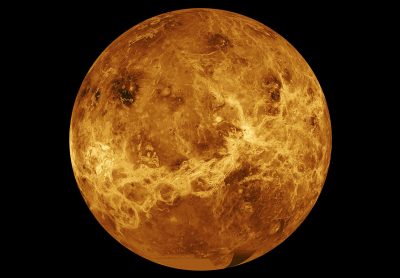
Astronomers find phosphine in Venus atmosphere. What's Next?
British and American researchers have detected phosphine in the acidic cloud cover of our neighboring planet Venus. Does this mean that there is life on Venus? The work of Dutch researchers affiliated with the Origins Center connects directly to this discovery in the Venus atmosphere.
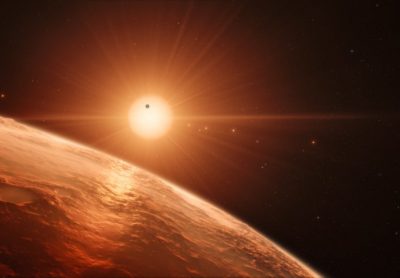
The discovery of TRAPPIST-1: searching for liveable planets
With its seven earth-like planets, the TRAPPIST-1 planetary system recently made the world news. Three of these planets are in the so-called liveable zone of their mother star. But what else is involved in the search for liveable planets? Astrobiologist Floris van der Tak takes us to TRAPPIST-1.
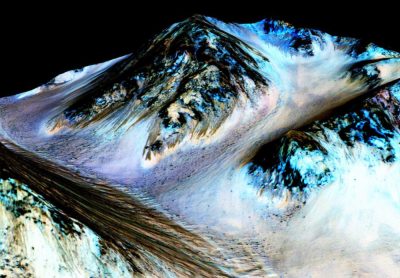
Life on other planets: closer than you think?
Are we alone in the universe? Or is there life on other planets as well? There are many television series, films and books about this, but scientists are also working to find answers. Astrobiologist Floris van der Tak investigates places with the greatest chance of life. But can we ever go there? (Dutch)
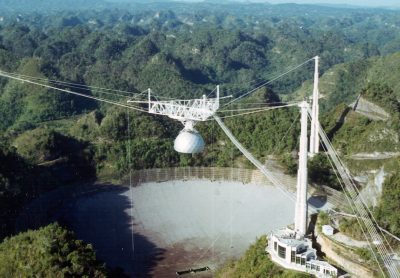
If the universe is teeming with life, where are the UFOs?
The Universe has many stars and even more planets. So, it would be very strange if there was no life anywhere else to be found. But where can we find that life? And what does that life look like? Dutch research looks at the Earth as an example. (Dutch)


